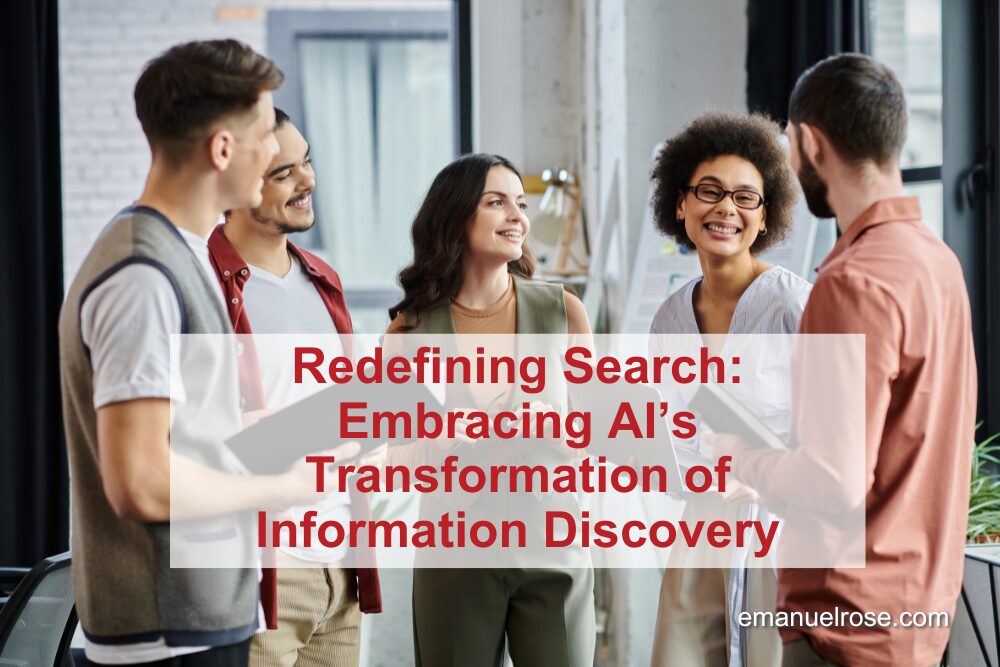Search engines have been information gatekeepers for decades, guiding users to the content they seek. However, the dominance of traditional search giants is being challenged as new technologies emerge. This shift is driven by AI’s ability to integrate with search engines, enhancing their ability to understand, interpret, and respond to user queries in ways previously unimaginable.
Traditional search engines relied heavily on web crawling and indexing to provide results. While effective, this model is being upended by the integration of AI that utilizes vast datasets and expert knowledge. This fusion of technology enables a more nuanced, intelligent approach to delivering search results.
Harnessing AI for a Dynamic Search Experience
AI is revolutionizing search engine operations by introducing techniques known as generative engine optimization. This approach allows search engines to move beyond simply directing traffic towards specific content and instead offer deeper, more personalized, and authoritative insights directly within the search interface.
Redefining Authoritative Sources
In this new ecosystem, what constitutes an authoritative source is evolving. AI-driven search platforms empower individual experts and large data providers to contribute valuable content. This shift democratizes access to knowledge creation, enabling even small creators to share expertise alongside renowned institutions.
Interactive and Customizable Search
AI-powered search engines also enhance the user experience by enabling consumers to tailor their search interactions. Users can choose which expert opinions to prioritize, see more in-depth graphical content, and interact with results in a way that traditional search engines never allowed.

Building a Collaborative Ecosystem
The future of search is not only about technological innovation but also about creating a sustainable ecosystem of knowledge sharing. By prioritizing partnerships with knowledge creators, these new platforms provide a cooperative environment where content providers can monetize their insights directly within the search experience. This approach challenges the traditional model where search engines were mere arbiters of information distribution, keeping the lion’s share of ad revenues.
Incentivizing Knowledge Sharing
With AI-driven platforms, content creators—from bloggers to industry experts—can directly benefit from their contributions. By embedding their knowledge within the search ecosystem, they can engage with users in real time and receive a share of the revenue generated, fostering a more equitable distribution model.
The Road Ahead
As AI continues to reshape how we search and engage with information, businesses must strategically align themselves with these changes to maintain competitiveness. Integrating AI in search technology is just one facet of a broader transformative process impacting the digital marketing landscape.
Creating a Future-Forward Approach
To fully harness the potential of AI-driven search engines, businesses must rethink their strategies, focusing on technological adoption and ethical considerations.


By maintaining a future-forward mindset and engaging deeply with AI’s evolving tools, companies can position themselves for sustainable growth and a competitive edge in the digital marketplace.
In conclusion, the new era of search, powered by AI, offers an unprecedented opportunity for innovation and collaboration. By understanding and leveraging these changes, businesses can enhance their marketing strategies and redefine their interactions with consumers and content creators.
Thank you to Vikas Sehgal for highlighting how embracing AI-powered search is critical to staying relevant as the future of information discovery evolves.
Get to know Vikas Sehgal: linkedin.com/in/vsehgal
Get to Vikas Sehgal’s company: hyperdart.com/hd
Watch the Marketing in the Age of AI podcast featuring Vikas Sehgal: youtu.be/XUsbXnK4-fs

